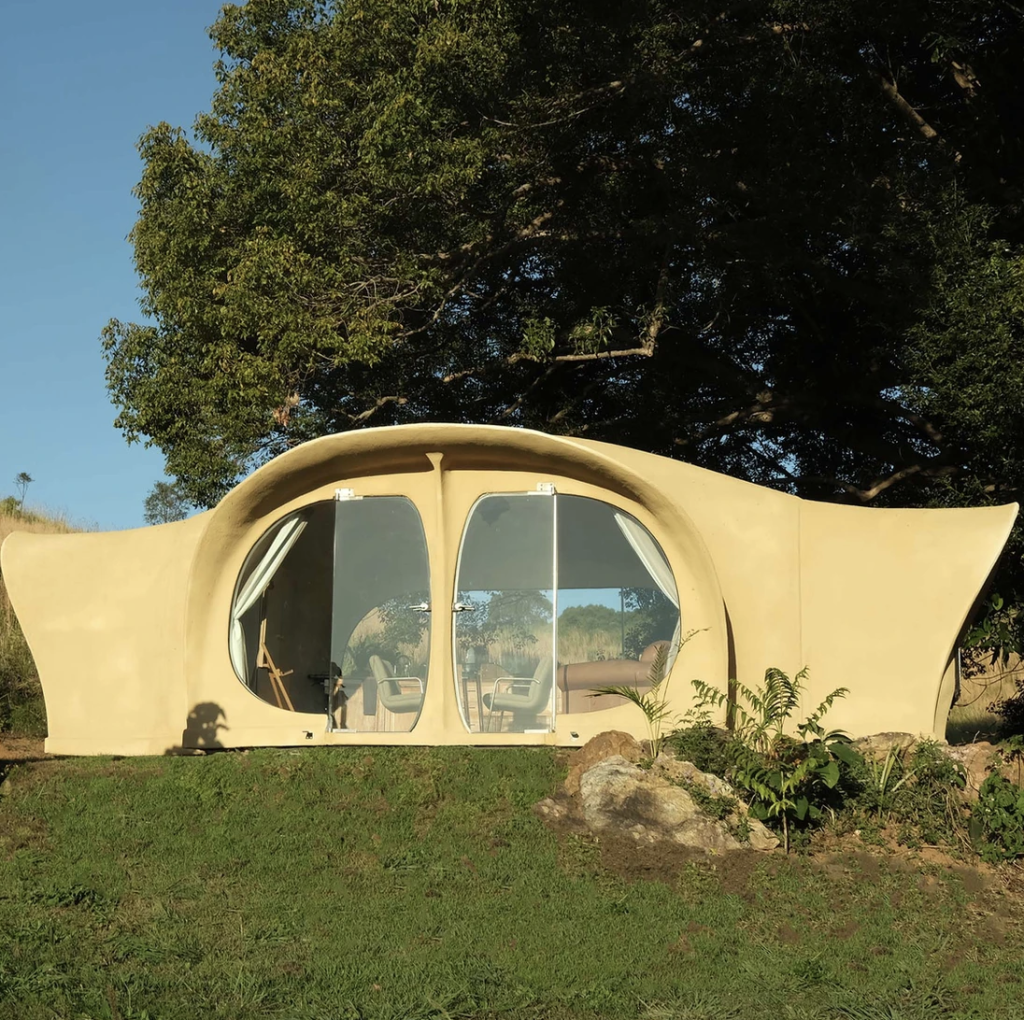An Australian company, Studio Kite, has developed a range of enormous 3D printers specifically designed to create models and props for the film and TV industry. Following the horrific 2019/20 bushfire season in Australia, they used these printers to create wildlife nesting boxes. As China had recently introduced its China Sword policy, the company was aware that Australia had a growing plastics problem, no longer able to export its waste, plastic was increasingly likely to get stockpiled or landfilled. The company then set about using recycled plastics as feedstock for their printers. The success of this project gave the company the idea that they might be able to scale-up their work and create nesting boxes for humans.
Working with a team, led by Andrew Rose at Southern Cross University, the technology has now been developed to print full-scale homes of up to 60 square meters. Freed from the confines of traditional materials, the team can develop curvilinear spaces, which create a feeling of spaciousness, while significantly decreasing the environmental impact of creating a similar space using traditional materials and techniques. 3D printing allows initial designs to be modified to optimise the building’s performance by adapting to site-specific conditions and orientation.
The team is experimenting with strengthening their designs using fabric as a reinforcement agent for the concrete that is sprayed over the buildings to strengthen and protect from harsh environmental conditions. At the end of use, buildings can be cut up and relocated, delaying any end-of-life impacts. For more information watch the video from Southern Cross here.
With the global population expected to reach over 10 billion in just 25 years, it is imperative that we drive down the environmental impacts caused by traditional building methods. While 3D printing has long been touted as a potential solution to this problem this Australian team’s experiments are particularly noteworthy for incorporating recycled plastics into their solution, undoubtedly delivering better environmental impacts than those projects focused on using traditional materials.
